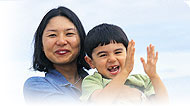Gluten Free
What does following a gluten-free diet mean? That you're embarking on an easy diet with a wide range of health-promoting effects. Instead of dwelling on what you’re giving up, consider that you’re going to enjoy a whole new world of delicious food options to meet your special dietary needs. You’ll be eating seasonally, choosing more fresh fruits and vegetables, focusing on meats, seafood, poultry, legumes, lentils, corn, and rice, and discovering fascinating ancient grains such as quinoa, amaranth, and millet. You’ll be able to eat potatoes, eggs, most cheeses, even chocolate (!)—and enjoy them without guilt because you’ll be taking good care of your body. In fact, you’ll probably end up eating—and feeling—better than ever!
Visit this page for more information about living Gluten Free
---
We carry a large variety of gluten free items, the brands listed below represent just some of the offerings we carry















More Diets
Common Cold/Sore Throat

About This Condition
The common cold is an acute (short-term) viral infection of the upper respiratory tract that may be spread through the air (by sneezing, for example) or by contact with contaminated objects.
A note about children’s cold medicine:
Concerns in the news about the safety of cough and cold medicines have left many parents confused about the safest ways to treat their children’s cold symptoms. At a hearing, the US Food and Drug Administration (FDA) concluded that, until more research shows safety and efficacy, these medicines should not be given to children under two years old unless instructed by a healthcare provider. For parents who may want to continue giving over-the-counter cold medicines to their children, the FDA has the following recommendations:
- Read all of the information in the “Drug Facts” box on the product label.
- Do not give children medicine more often or in greater amounts than what is listed on the product label and use only as directed.
- Do not give children medication that is intended for adult use.
- Be aware that using various cough and cold medicines in combination may pose health risks; parents should ask a doctor whether or not it is safe to use products in combination.
- Use appropriate measuring devices; parents should contact their doctor or pharmacist if they do not understand the dosing directions.
Symptoms
The common cold often causes runny nose, sore throat, and malaise (vague discomfort). Sore throat is sometimes a symptom of a more serious condition distinct from the common cold, such as strep throat, which may require medical diagnosis and treatment with appropriate antibiotics. Since colds are caused by a viral infection, antibiotics are not effective against the common cold.
Healthy Lifestyle Tips
One study found that a daily saltwater nasal rinse may be beneficial for children with colds.1 The children who used saline nasal rinses (six times per day initially and three times per day during the rest of the 12-week study) had fewer nasal and throat symptoms, they were healthier, and fewer of them used medications to manage their symptoms than the children who did not use the rinses. They were also less likely to have been sick again, and they missed less school. The nasal rinse was a standard 0.9% saline (sodium chloride) solution with trace elements and minerals in concentrations similar to those in seawater. Neti pots (small pots for nasal rinsing) and mineral salts to use with them are now widely available. Lifestyle habits that may support the immune system and speed recovery include the following:
- Drink plenty of fluids in order to maintain water balance and to thin secretions.
- Eat raw garlic, which has antibacterial and antiviral properties. Crush a clove or two and add to foods like soups and grains just before serving.
- Gargling with plain water three times a day removes mucus and keeps bacteria and viruses from sticking around.
- A warm, humid environment created by a humidifier may provide some comfort while riding out a cold.
Copyright © 2025 TraceGains, Inc. All rights reserved.
Learn more about TraceGains, the company.
The information presented by TraceGains is for informational purposes only. It is based on scientific studies (human, animal, or in vitro), clinical experience, or traditional usage as cited in each article. The results reported may not necessarily occur in all individuals. Self-treatment is not recommended for life-threatening conditions that require medical treatment under a doctor's care. For many of the conditions discussed, treatment with prescription or over the counter medication is also available. Consult your doctor, practitioner, and/or pharmacist for any health problem and before using any supplements or before making any changes in prescribed medications. Information expires December 2025.











